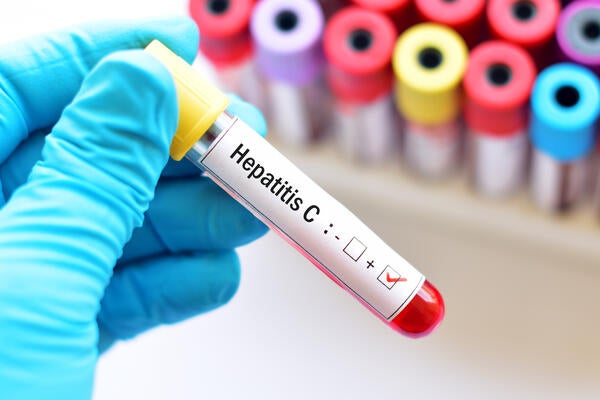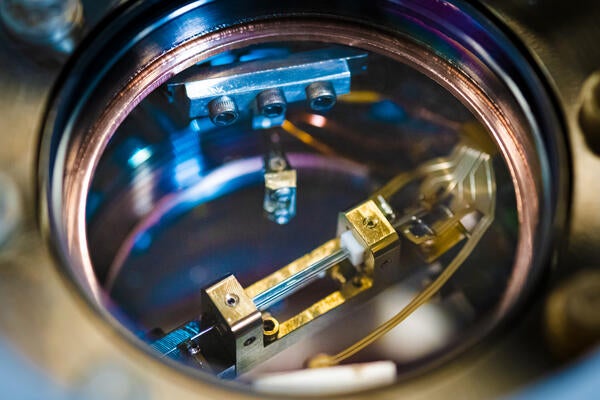Indigenous youth from the Kluane First Nation will visit the University of Waterloo next week as part of an initiative to test fish mercury levels in Northern Canada in light of changes to traditional food sources in the Yukon.
The group will visit Professor Heidi Swanson’s biology lab to test fish mercury levels from samples the children collected from Kluane Lake, the largest lake in Canada’s Yukon Territory.
“Northern communities are seeing population declines in traditional foods such as moose and sheep and are now looking to supplement with other food sources, like fish.” said Swanson, a University Research Chair in the Faculty of Science and member of the Water Institute. “Mercury levels in the lake have only ever been measured in two fish to our knowledge, and assessing contaminant levels in the lake was one of the steps in Kluane First Nation’s food security strategic plan.”
The two Indigenous youth will be accompanied by a Youth Councilor from Kluane First Nation, Indigenous film maker Tookie Mercredi, and Norma Kassi, Director of Indigenous Collaboration for the Arctic Institute of Community Based Research.
Filmmaker Tookie Mercredi, formerly of the CBC and Discovery Channel, is filming the visit as part of a documentary called “Nourishing Our Future”, produced by Norma Kassi.
The project, initiated by the Kluane First Nation in partnership with the Arctic Institute of Community Based Research in 2014, aims to combine traditional knowledge with scientific findings to secure sustainable food sources for the northern community’s next generation.
Media are invited to attend the visit, which will include a welcome with tea and bannock ceremony at the University of Waterloo’s Aboriginal Education Centre, a lab coat decorating activity, and lab analysis training for fish mercury levels that will take place partly at University of Waterloo and partly at Western University.
“The Arctic Institute of Community Based Research (AICBR) works to address community concerns around human and environmental health, climate change adaptation, and food security,” says Kassi. “Youth are a focus in all of our projects, and this project is an excellent example of youth being trained in both traditional knowledge and science approaches.”
Together with Kluane First Nation, Arctic Institute of Community Based Research, and the Dän Keyi Renewable Resource Council, Swanson and her MSc student Nelson Zabel are conducting the first comprehensive contaminants study of Kluane Lake.
Canada Research Chair Brian Branfireun from Western University is a collaborator in the study, and is facilitating all of the mercury analyses at the University’s Biotron Experimental Climate Change Research Centre.
Swanson’s work with the delegation this Tuesday will include looking at the ear bones of lake trout and whitefish they collected last summer. Fish ear bones grow like tree rings, recording information about where the fish lived, how fast it grew and what water temperature it lived in. The youth will also be preparing samples for mercury analysis, which will be done at Western University the next day as part of their visit.
Exposure to mercury from fish consumption is widespread in northern communities, despite their distance from human sources of mercury. Mercury is emitted to the atmosphere, circulates around the globe, and lands on remote lands and waters in rain and snow. Swanson’s research aims to help identify the safest fish for northerners to eat.
“Our preliminary results show the Kluane Lake trout and whitefish are really low in mercury. Almost all of the fish are below the subsistence consumption guidelines, which is amazing,” says Swanson,. “It’s a good news story – these youth are combining the best of both the scientific and traditional worlds and taking charge of their future.”
|
Time*
|
Event
|
Location
|
|
11 am – 12 pm
|
Lab coat decorating activity
|
University of Waterloo Aboriginal Education Center, Room 232,
St. Paul’s College, 190 Westmount Rd. N., Waterloo
|
|
12 pm – 1 pm
|
Lunch
|
University of Waterloo campus
|
|
1 pm – 3:15 pm
|
Lab analysis: looking at prepared fish otoliths for age, grinding fish samples for mercury analysis next day at Western
|
Prof. Heidi Swanson’s laboratory,
University of Waterloo, main campus
Earth Sciences and Chemistry Building (ESC) 222C
|
The youth travel to Western University on Wednesday to complete the sample testing.








